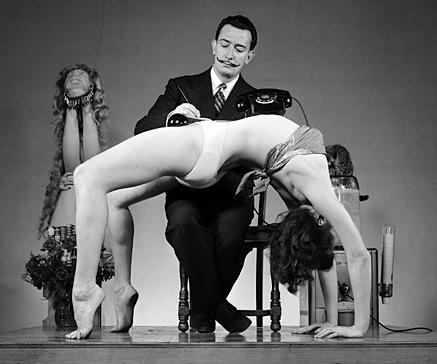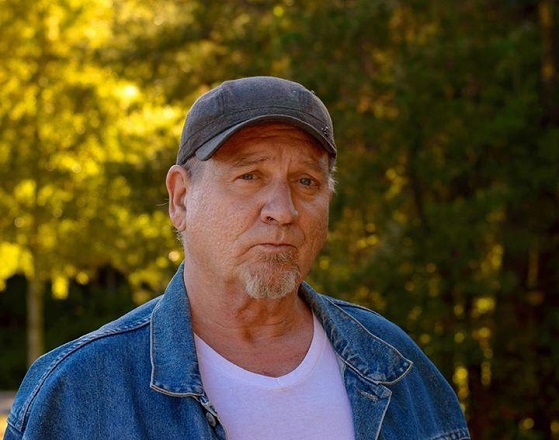Writing For My Life.

{source}
The first time I heard of the concept of living for art, or having art save one’s life, is when I was in my twenties and working at a college.
I was writing publicity and press releases for the various art departments — music, theater, fine arts. In time, I gained some influence over who they brought in to showcase and perform, especially for the music department.
The college’s music department was classically oriented and highly regarded, but — believe it or not — at the same time, tone deaf to jazz.
In addition to the fact that I felt a personal creative connection to jazz — to its raw independent energy, and the extraordinary sense of composition within its improvisational framework — that’s how I wanted to write — the college was also in an urban setting and booking jazz, I felt, would add to the college’s local stature and accessibility.
I went to visit a musician I knew, and whose music I admired, in order to offer him a gig and sign a contract. He was living in absolute squalor. Electricity spliced in from an adjoining apartment; buckets of water, not running water.
I didn’t understand how anyone could live like this, let alone be creative in such a bleak environ. To say it was depressing would be a monumental understatement.
While he was heating some water for instant coffee over a Bunsen burner, I looked around. He was a saxophonist/composer. I noticed his horn in a dark corner of the room and some loose leaf paper scattered around it.
I asked, “Man, are you still playing?”
He growled back, “Of course I’m still playing music. My goddamn life depends on it!”
Years later, after the Soviet Union fell apart and people could freely visit the former Soviet-controlled Baltic countries, visitors discovered clusters of musicians playing music that had been banned — contemporary avant-garde and jazz — for being bourgeois or foreign.
Not only were they playing it, but they were playing it virtuosic, despite being forbidden to even rehearse this kind of music together, let alone play it publicly before appreciative and paying audiences
When a reporter asked them, “Why?” they answered sardonically — a form of expression that had become prominent behind the Iron Curtain — “For the money, Comrades, for the money…”
I’ve been a prolific writer all my life — six novels, three books and a couple of plays. I wrote those novels and books and plays because I felt as though I was seeing disturbing undercurrents of things going on in my nation and society that others were ignoring or denying.
I live and work in America, the land of the ubiquitous happy face emoticon, so there’s a lot of stuff that gets pushed down happy face’s invisible throat.
I’ve met with several major publishers over the years who admired my craft but couldn’t understand why I was wasting my talents writing about stuff like that — race, violence, drugs, money, incarceration, sex, war. So be it.
I really only wrote all that over all those years for the money, my capitalist comrades — for the money, and mo’ money, and mo’ money, and mo’ mo’ mo’ money. The name of what is fast becoming the only game in the US of A.
But even with that, I was still writing to save my country and the world. If you are in your 20’s or 30’s, and don’t think your reason for creating art is to change the world, then you should go get a blood transfusion from a dead artist or set your sights on another occupation.
Then, a little while back — that’s how my homeys usually introduce a time in their lives when the usual shit going on spiked up to a whole ‘nother level of off-the-grid crazy — so I’ll use it here.
A little while back I lost my home and my income right after my mother died, who I took care of in that house for almost four years.
I honestly did not have a clue what might happen next or why this was happening at all.
In this day and age — at least in the national home of Mr. Smiley Face — it is no longer socially acceptable to take care of terminally ill parents in one’s home. They need professional care. If you object to this new social (and business) covenant, your motives become suspect.
Suspected of what? Loving my mother, and wanting to see her cared for personally and to die with dignity at home?
Sue me!
So they did. After haggling in court with lawyers, court-appointed attorneys, and assorted other officious fools, I then, on my own — in my home — watched my mother slowly disappear into Alzheimer’s and then death.
By the end of it all — homeless and destitute, like I said earlier — I did not know what just happened to me and why.
Of course, I was taking stabs at it. Was it my fault? Should I have been more cooperative with my sibling and the court? All that money wasted on lawyers… I could sure use some of it right now.
But I really could not spend much time pondering the past. I had to find a place to live, food, money.
And after I did… well, if you have ever driven through industrial farmlands and seen the huge fans they use to spread manure across the fields — yeah, I’m talking about those kinds of massive loads of shit hitting the fan.
I was buried by it; could not move, let alone think. I felt paralyzed by a palpable wave of grief, anxiety and depression. It came upon me slowly at first, like a Biblical plague, but then it suddenly just overwhelmed me, took me over.
There was no space left between me and it, and therefore, no more of me that could separate from it.
I went through the standard treatment for people in such conditions — shrinks, rehab, meds.
But, honestly, I did not start to get a handle on my experience or feel like my own self again until I started writing about it at the end of three months of intensive therapy.
I wanted the truth; I needed the Truth. My life literally depended on finding It.
“Dream or nightmare, we have to live our experience as it is, and we have to live it awake.” ~ Jacob Bronowski, The Ascent of Man
Here’s an excerpt from An Odyssey in the Great American Safety Net, about writing it:
It would not be easy to write — no book is — but I intuited that it would continue to be cathartic for me to go on candidly recreating my experience in words. I was no longer writing the book just for my own therapeutic benefit; I was writing it now to be read by others. Therefore I had to be — to the best of my abilities — absolutely honest and authentic. Maintaining that perspective while writing the book would, I felt, not only liberate me emotionally and psychically, but make it a story that many other people would be able to relate to. It would also allow me to view my experience more objectively than I might have otherwise.
[youtube]ZgeF3wS0xTI[/youtube]
*****

